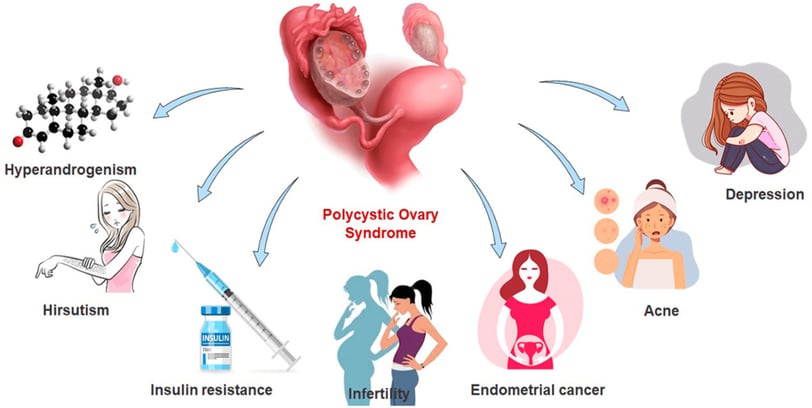Understanding PCOS: Causes, Symptoms, Treatment, and Cure
Learn about PCOS: its causes, symptoms, treatment options, and potential cures. Stay informed to better manage and understand Polycystic Ovary Syndrome. #PCOS


Introduction
Polycystic Ovary Syndrome (PCOS) is a common hormonal disorder that affects many women of reproductive age. It is characterized by an imbalance of reproductive hormones, which can lead to various symptoms and health issues. In this article, we will explore the causes, symptoms, treatment options, and possible cures for PCOS.
Causes of PCOS
The exact cause of PCOS is still unknown, but several factors may contribute to its development:
Genetics: PCOS tends to run in families, suggesting a genetic component.
Insulin Resistance: Insulin resistance, a condition where the body's cells do not respond properly to insulin, is often associated with PCOS.
Hormonal Imbalance: PCOS is characterized by elevated levels of androgens (male hormones) and lower levels of estrogen (female hormones).
Symptoms of PCOS
PCOS can present with a wide range of symptoms, which may vary from woman to woman. Some common symptoms include:
Irregular Menstrual Cycle: Women with PCOS may experience infrequent or prolonged menstrual periods.
Excessive Hair Growth: Due to the elevated androgen levels, women with PCOS may develop excess facial and body hair.
Acne: Hormonal imbalances can contribute to the development of acne.
Weight Gain: Many women with PCOS struggle with weight gain or find it difficult to lose weight.
Fertility Issues: PCOS is one of the leading causes of female infertility.
Treatment Options for PCOS
While there is no cure for PCOS, various treatment options are available to manage the symptoms and improve overall health:
Lifestyle Changes: Adopting a healthy lifestyle that includes regular exercise, a balanced diet, and stress management can help manage PCOS symptoms.
Medications: Birth control pills, anti-androgen medications, and insulin-sensitizing drugs may be prescribed to regulate menstrual cycles, reduce androgen levels, and improve insulin sensitivity.
Fertility Treatments: Women who are trying to conceive may benefit from fertility treatments such as ovulation induction or in vitro fertilization (IVF).
Possible Cures for PCOS
While PCOS cannot be cured completely, certain strategies may help alleviate symptoms and improve overall well-being:
Weight Loss: Losing even a small amount of weight can have significant benefits for women with PCOS, as it can improve hormonal balance and insulin sensitivity.
Dietary Changes: Following a low glycemic index (GI) diet, which focuses on consuming foods that have a minimal impact on blood sugar levels, may help manage symptoms.
Stress Management: Stress can worsen PCOS symptoms, so finding effective stress management techniques like yoga, meditation, or counseling can be beneficial.
Conclusion
PCOS is a complex hormonal disorder that requires a comprehensive approach to management. By understanding its causes, recognizing the symptoms, and exploring available treatment options, women with PCOS can take control of their health and improve their quality of life. While there is no cure, adopting a healthy lifestyle, seeking medical intervention when necessary, and managing stress can help manage PCOS effectively.
